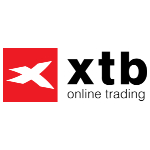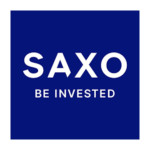How To Buy Disney Stocks & Shares
Buy Disney (DIS) Stocks & Shares
Discover the best ways to buy Disney stock and maximize your investment. Follow our simple guide!
As a powerhouse in the entertainment industry, Disney offers a robust investment opportunity, and our blog is here to simplify the process for both seasoned investors and beginners alike. However, buying Disney stocks and shares requires some knowledge and preparation.
In this guide, we’ll take you through the steps you need to follow to buy Disney stocks and shares and provide you with some tips to help you make informed investment decisions.
Top trading apps
-
Flat fee trading
- Join today & get £50 FREE trading credit
-
Award Winning
- Trade 24/7
-
Best for Share Dealing
- Award Winning Trading App
-
Best for Global Trading
- £500 in trading commissions
The right share trading app or platform for you will depend on your requirements.
How to buy Walt Disney shares
Our view: The next generation of online trading platform means you can get setup & buy Walt Disney shares in as little as 5 minutes!
- Select a share platform - See our top platform picks
- Open your share account - To do this, you will need your bank details and national insurance number
- Fund your account - You will need to fund your a/c with a debit or credit card or bank transfer
- Search for the share using the Walt Disney stock code - Type in the DIS stock code into the search box
- Check out the latest info and price for the selected share - Some platforms offer free research and analysis
- Buy the share - Nice and easy!
More than 40,000 UK & international investment options
Get £100 worth of free trades when you open an ii trading account. Terms & fees apply. New customers only. Ends 5th April | Go to website » | |
| Trusted by over 430,000 people. FSCS protected. Capital at risk. | ||
Buy shares from over 24 international markets
| Go to website » | |
| Trusted by over 1.5 million people. FSCS protected. Capital at risk. | ||
Choice of 760 low cost ETF Funds
| Go to website » | |
| Build your own low cost portfolio using ETF managers such as Vanguard & JP Morgan. FSCS protected. Capital at risk. | ||
13,000+ shares & ETFs to trade
| Go to website » | |
| 313,000+ clients worldwide. FCA Regulated. Capital at risk. Spread bets and CFDs are complex instruments and come with a high risk of losing money rapidly due to leverage. 71% of retail investor accounts lose money when trading spread bets and CFDs with this provider. You should consider whether you understand how spread bets and CFDs work, and whether you can afford to take the high risk of losing your money. | ||
| Buy & trade in almost 5500 UK, EU and US stocks with low 0.35% currency conversion. Features: Say goodbye to high minimums and barriers to entry. Introducing the high interest vaults offer: - Interest rate: 4.61% on GBP (as of 12th March 2025) - Pricing: 0.25% total fees for all deposit sizes - Minimum amount: £1, €1, $1 - Maximum amount: No limit Capital at Risk | Go to website » | |
| Multi-currency investing, your money goes even further without the constant foreign exchange fees. Deposit, hold and invest in international stock markets in EUR, GBP and USD — all under one roof. Shares have a low, transparent execution cost. Investing in your local ETFs is completely free of Lightyear fee (other fees may apply). Earn interest on uninvested cash. Access live news feeds about the stocks you own, as well as professional analyst ratings & price targets. Lightyear is now live on web and has launched earnings calls audios. Capital at Risk. We, Fair Investment Company, will be paid a referral fee if you open an account and deposit funds through some of the links on this page. This includes financial promotion. | ||
| Invest in real stocks with 0% commission*. Over 6900 instruments Features: XTB is one of the largest stock exchange-listed FX brokers in the world with 1 million+ customers and over 20 years of activity in the financial markets. Capital at Risk Earn 4.5% interest rate on GBP uninvested funds | Go to website » | |
| World class trading platform: Easy to use, fully customisable, superior execution speeds, performance statistics. Applying for an account is quick and easy with a secure online form, and you could be trading within minutes. Wide range of instruments -forex, indices, commodities, shares and ETF’s. Multilingual customer support team is ready to help you - 24h hours a day from Monday to Friday. *For monthly turnover up to 100,000 EUR (then comm. 0.2%, min. 10 EUR). Capital at risk | ||
| Invest in over 6,100+ US, UK & EU stocks & ETFs commission-free Features: Start with £2 investment. Superb app design and transparent account charges. Great for beginners and experienced investors alike | Go to website » | |
| Mobile app - manage your portfolio on the move. FSCS protected. Capital at risk. | ||
| Access over 3,000 funds. UK & Overseas shares. Invest from £100 or £25 pm Features: Live share prices. Award winning services. | Go to website » | |
| Hargreaves Lansdown is the UK's No 1 platform for private investors trusted by over 1.6 million customers. Capital at risk. | ||
| Access to 70,000+ instruments, smart trading tools & market insights Investment platform for different needs and experience levels | Go to website » | |
| Saxo serve clients in 170 countries, hold 70+ bn GBP in assets under management & process 1m transactions daily. FCA regulated. Capital at risk. | ||
Trading news for Disney
Is now a good time to buy Disney shares?
Current and forecasted share price for Disney (DIS)
Disney stock is volatile, evidenced in the shares’ performance from 2022 to 2023. In April 2022, the share price of Disney sat at around $130, and the share price as of April 2023 currently sits at $99.91 (as of writing).
Will the Disney share price increase?
In November 2022, Disney replaced its CEO with former CEO Bod Iger, who was previously responsible for acquiring Pixar, Marvel & Lucasfilm. The company is currently going through a restructuring process – as of 8th February 2023, announced a cut of 3.6% of its global workforce as part of a cost-cutting exercise to make savings of $5.5bn with a focus on making the company more efficient. Investors have largely welcomed these cuts. See the technical analysis above on how brokers see the Disney share price prospects going forward.
Is Disney a good investment in 2023?
See the broker sentiment views above to get an idea of how brokers are seeing the Disney stock as whether a sell or buy currently.
What are the benefits of investing in Disney?
The strength of the brand
Disney has been around for nearly a hundred years and has developed a universally recognised brand. As a result, it has a loyal fan base. These factors, together with many others, mean that it has incredible potential for future increases in revenues, which in turn can benefit investors.
Many forms of revenue
Disney+, merchandise, theme parks, films, tv series, the list goes on. Disney produces a range of different revenue streams. Because the company can always pivot towards one of its many revenue streams when faced with challenges or potential losses, it reduces its risk as an investment prospect.
Growth potential
Disney has successfully operated for nearly 100 years as a company that has demonstrated its long-term growth potential.
With that in mind, investors should also consider the assets that Disney has accumulated over the years, including 21st Century Fox and franchises such as Star Wars and Marvel. This makes its reach and revenue potential attractive as an investment option.
Financials
Disney’s turnover grew to $82,722m (as at 1/10/2022) compared to $67,418m in 2021. Profit before tax more than doubled to $5,866m.
In the first quarter of 2022/23 revenue rose 8% to $23.5bn, primarily driven by Disney Parks, Experiences & Products.
Innovation
As mentioned earlier, Disney has consistently reinvented itself and added to its assets over the years in a variety of ways. This, coupled with its commitment to innovation in finding new and exciting ways to engage with its consumers, will likely continue to find new ways.
At the end of 2022, Disney rehired Bob Iger as CEO, who has embarked on a cost-cutting strategy to reign in the costs of competing in the streaming space.
What are the risks of investing in Disney?
The risks of the entertainment industry
Disney is in the entertainment industry, and therefore, it is affected by all factors that can impact it. The recent COVID-19 pandemic spotlighted how entertainment businesses are vulnerable to global events.
Dependence on certain franchises
Disney relies on some of its significant properties, such as Star Wars and Marvel, for revenue, representing a major part of their revenue.
As a result, if these properties should become less successful or less prevalent in the future, this will inevitably have an impact on how valuable the company is as a whole since it will need help to make up for these lost revenues in other areas of its asset portfolio.
Legal and regulatory risk factors
Since the scale of Disney is so massive, the company has to consider a wide variety of regulatory and legal factors. These factors can cause problems for the company in terms of how its run or restrict it from conducting business in specific ways.
For instance, specific properties it currently owns will go into the public domain after a particular time has passed because of the laws for copyright and intellectual property.
For example, the rights for the original likeness and use of Mickey Mouse will go into the public domain soon, meaning other companies and entities will be able to profit from this property, and it will not be exclusive to Disney any more.
Macroeconomic factors
External financial factors, such as economic downturns, significant changes in consumer spending, and so on, can cause large companies such as Disney to struggle and make losses.
A good recent example is the current U.K. cost of living crisis. This has led to Disney experiencing a 12% increase in its churn rate (loss of subscribers) in 2022 in the U.K.
Theme park dependency
One of Disney’s most popular assets, differentiating it from its competition, is its theme parks, which are found worldwide. However, Disney relies heavily on the revenues from theme park attendance, which is problematic when external factors interfere.
Covid 19 is an extreme example of how external factors can impact attendance at theme parks. Still, other factors, such as the rise in travel costs, economic downturns, natural disasters etc., can also play a role.
How to buy Disney indirectly within an investment fund
There are a few different investment options for investors to consider concerning investing in Disney stocks and shares via an investment fund. For example, you can invest in an ETF (exchange-traded fund) or funds that invest in the S&P 500.
Buying Disney Stock within an ETF
Several ETFs hold Disney shares.
Here are a few examples:
- Invesco NASDAQ Internet ETF (PNQI). This ETF focuses on the largest and most liquid companies engaged with internet-related activities. At the time of writing, Disney represented 7.17% of its total holdings. This ETF trades in USD.
- Vanguard Communication Services ETF (VOX). With this ETF, investors can get broad-based exposure to the telecom industry at a low cost. As a result, it can often deliver attractive returns for dividend investors. At the time of writing, Disney represented 6.13% of the total fund. This ETF trades in USD.
- Fidelity MSCI Communication Services Index ETF (FCOM). FCOM tracks an index of well-known stocks such as Facebook, Twitter, Netflix, and Alphabet’s parent company, Google. At the time of writing, Disney represented 5.80% of the total fund. This ETF trades in USD.
- iShares Global Comm Services ETF (IXP). A combination of U.S. and international stocks makes up this ETF that provides exposure to the global telecom industry. At the time of writing, Disney represented 4.23% of the total fund. This ETF trades in USD.
The list above is incomplete, and other listed ETFs may also invest in Disney shares. Additionally, doing your own research and considering your investment objectives and risk tolerance before investing in any ETF is important.
How can I use spread betting or CFDs to trade Disney stock?
Spread betting and CFDs (contracts for difference) offer investors the ability to invest based on price speculation, as opposed to outright investment, so this is a useful alternative option for investors who might not be willing to take the risk on the potential volatility of Disney stock, but whom would want to pursue still an opportunity of making a return in some form.
Investors need to choose which investment technique they wish to use (i.e. going short or long on the investment) and then identify the size of the position they want to use, as well as setting the margins of the investment (i.e. the stop losses, leverage etc).
FAQs
What is the minimum amount required to invest in Disney stocks?
What is Disney’s ESG policy?
Finally, Disney also aims to promote respect, consideration, and appreciation within the culture it creates and perpetuates.
Q: How do I keep up with the latest information about Disney’s stock price?
Furthermore, keep up to date with investor sentiment via articles and blogs. The sentiment is the way investors feel about a particular stock. It can be helpful to consider the market’s overall opinion or speculations about a specific stock, as this can indicate how people will trade with it in the future, which can affect its share price.
About Walt Disney
The Walt Disney Company operates as an entertainment company worldwide. It operates through three segments: Entertainment, Sports, and Experiences. The company produces and distributes film and television content under the ABC Television Network, Disney, Freeform, FX, Fox, National Geographic, and Star brand television channels, as well as ABC television stations and A+E television networks; and produces original content under the Disney Branded Television, FX Productions, Lucasfilm, Marvel, National Geographic Studios, Pixar, Searchlight Pictures, Twentieth Century Studios, 20th Television, and Walt Disney Pictures banners. It also offers direct-to-consumer streaming services through Disney+, Disney+ Hotstar, and Hulu; sports-related video streaming content through ESPN, ESPN on ABC, ESPN+ DTC, and Star; sale/licensing of film and episodic content to television and video-on-demand services; theatrical, home entertainment, and music distribution services; DVD and Blu-ray discs, electronic home video licenses, and VOD rental services; staging and licensing of live entertainment events; and post-production services. In addition, the company operates theme parks and resorts comprising Walt Disney World Resort, Disneyland Resort, Disneyland Paris, Hong Kong Disneyland Resort, Shanghai Disney Resort, Disney Cruise Line, Disney Vacation Club, National Geographic Expeditions, and Adventures by Disney, as well as Aulani, a Disney resort and spa in Hawaii. Further, it licenses its intellectual property (IP) to a third party that owns and operates Tokyo Disney Resort; licenses trade names, characters, visual, literary, and other IP for use on merchandise, published materials, and games; operates a direct-to-home satellite distribution platform; sells branded merchandise through retail, online, and wholesale businesses; and develops and publishes books, comic books, and magazines. The Walt Disney Company was founded in 1923 and is based in Burbank, California.













